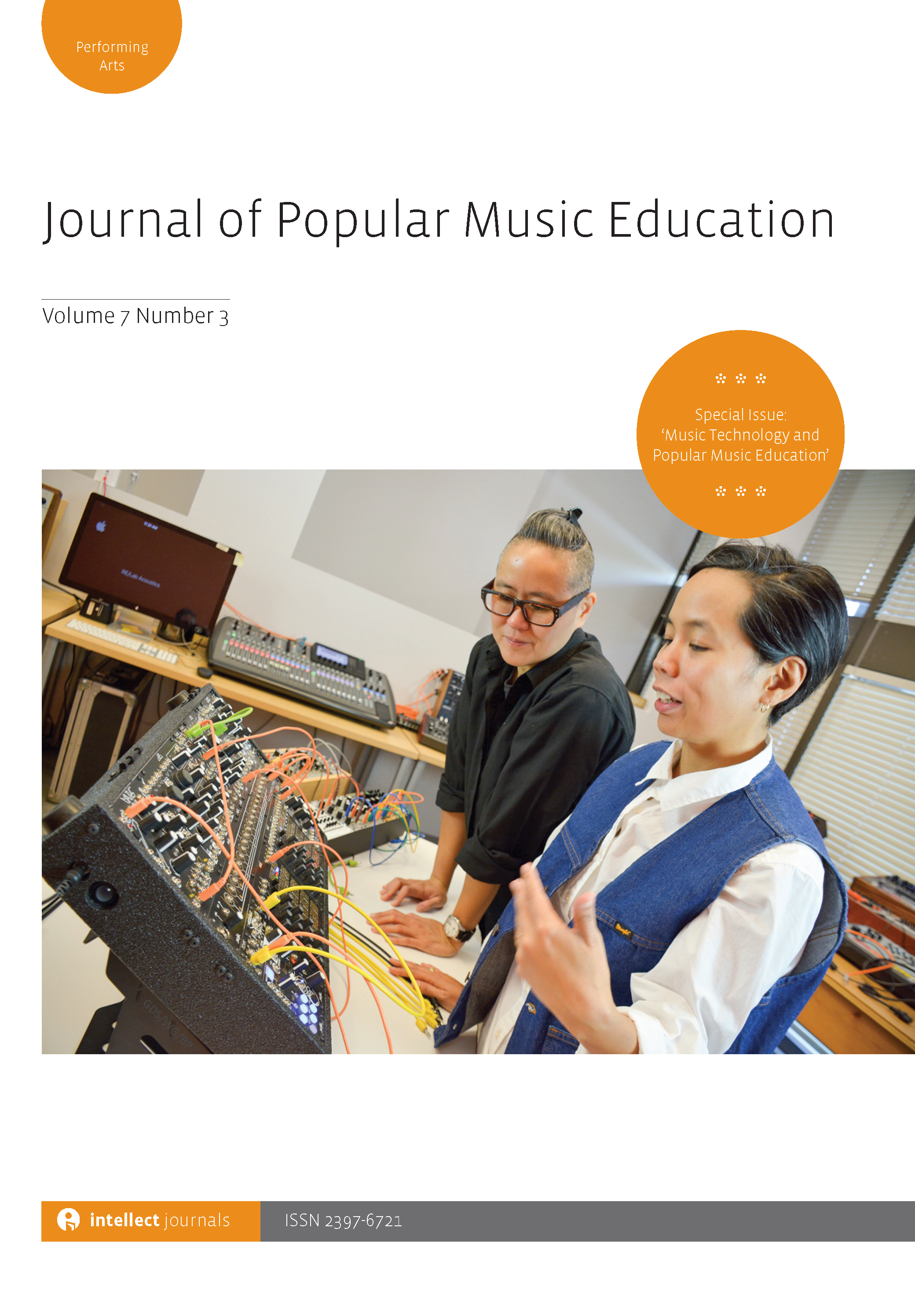
Full text loading...

This article presents some of the data gathered in a study on popular music education in Hong Kong, which was marginalized in local schools until recently. The study was conducted between April and December 2021 to explore possible policies that could promote Hong Kong popular music via education. It adopted a mixed-method design that consisted of a survey questionnaire, ten in-depth, semi-structured interviews with popular music education stakeholders and fifteen focus-group interviews with participants in various popular music education programmes. While the research findings are based on a small amount of data about a short period, from them I hope to offer a modest suggestion on how to draft policies that promote Hong Kong popular music, a genre that is generally agreed to be declining in the new millennium, through education in the future.

Article metrics loading...

Full text loading...
References


Data & Media loading...

Publication Date:
https://doi.org/10.1386/jpme_00112_1 Published content will be available immediately after check-out or when it is released in case of a pre-order. Please make sure to be logged in to see all available purchase options.